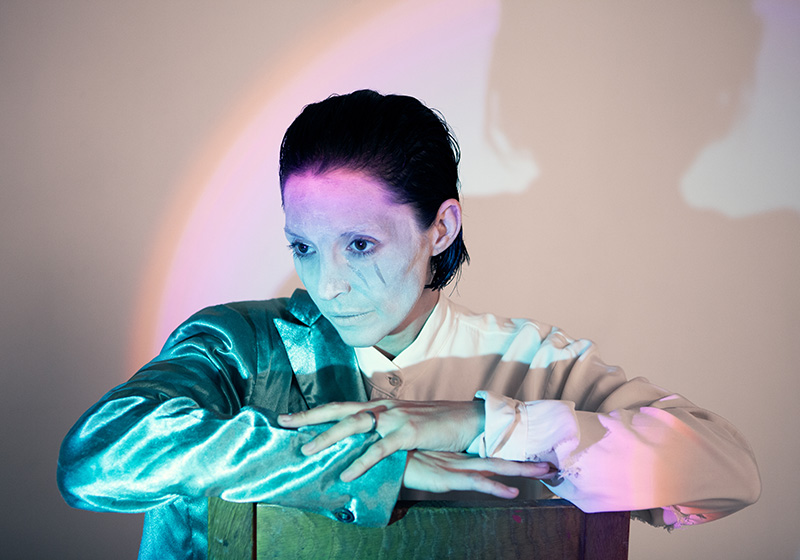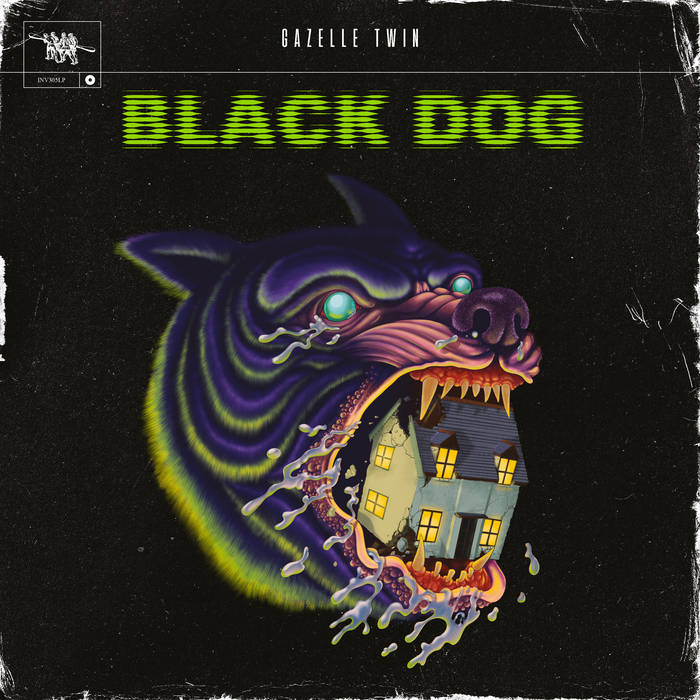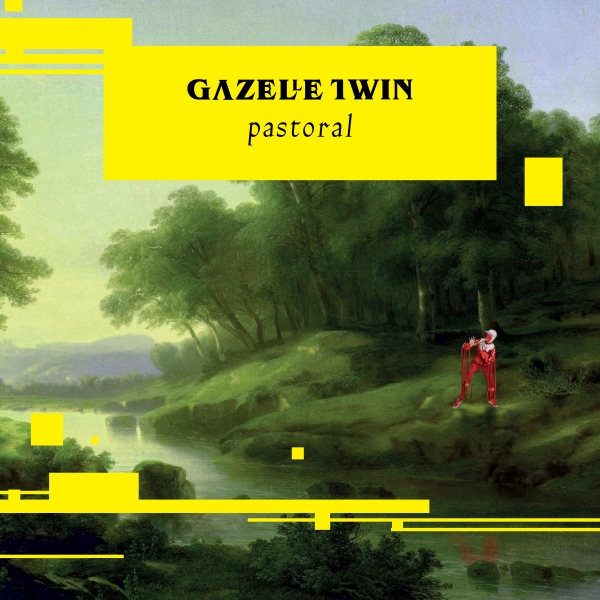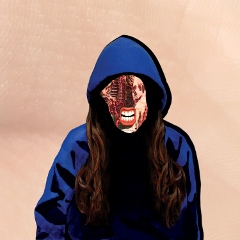MOST READ
- interview with xiexie オルタナティヴ・ロック・バンド、xiexie(シエシエ)が実現する夢物語
- Chip Wickham ──UKジャズ・シーンを支えるひとり、チップ・ウィッカムの日本独自企画盤が登場
- Natalie Beridze - Of Which One Knows | ナタリー・ベリツェ
- 『アンビエントへ、レアグルーヴからの回答』
- interview with Martin Terefe (London Brew) 『ビッチェズ・ブリュー』50周年を祝福するセッション | シャバカ・ハッチングス、ヌバイア・ガルシアら12名による白熱の再解釈
- VINYL GOES AROUND PRESSING ──国内4か所目となるアナログ・レコード・プレス工場が本格稼働、受注・生産を開始
- Loula Yorke - speak, thou vast and venerable head / Loula Yorke - Volta | ルーラ・ヨーク
- interview with Chip Wickham いかにも英国的なモダン・ジャズの労作 | サックス/フルート奏者チップ・ウィッカム、インタヴュー
- interview with salute ハウス・ミュージックはどんどん大きくなる | サルート、インタヴュー
- Kim Gordon and YoshimiO Duo ──キム・ゴードンとYoshimiOによるデュオ・ライヴが実現、山本精一も出演
- Actress - Statik | アクトレス
- Cornelius 30th Anniversary Set - @東京ガーデンシアター
- 小山田米呂
- R.I.P. Damo Suzuki 追悼:ダモ鈴木
- Black Decelerant - Reflections Vol 2: Black Decelerant | ブラック・ディセレラント
- Columns ♯7:雨降りだから(プリンスと)Pファンクでも勉強しよう
- Columns 6月のジャズ Jazz in June 2024
- Terry Riley ——テリー・ライリーの名作「In C」、誕生60年を迎え15年ぶりに演奏
- Mighty Ryeders ──レアグルーヴ史に名高いマイティ・ライダース、オリジナル7インチの発売を記念したTシャツが登場
- Adrian Sherwood presents Dub Sessions 2024 いつまでも見れると思うな、御大ホレス・アンディと偉大なるクリエイション・レベル、エイドリアン・シャーウッドが集結するダブの最強ナイト
Home > Interviews > interview with Gazelle Twin - UKを切り裂く、恐怖のエレクトロニカ
interview with Gazelle Twin
UKを切り裂く、恐怖のエレクトロニカ
——ガゼル・ツイン、本邦初インタヴュー
作曲家、プロデューサー、シンガーであるエリザベス・バーンホルツの別名として知られるガゼル・ツインの作品は、トランスフォーメイション(変化・変容)によって定義されてきた。2011年に『The Entire City』でデビューした際には、マックス・エルンストの鳥のような分身、ロプロップに触発された衣装でパフォーマンスを行った。2014年の『Unflesh』では、彼女の学校の運動着をモチーフにした衣装を身に着け、ナイロン・ストッキングを頭にかぶって顔を覆い、内臓をえぐるような(ホラーな)音楽を演奏した。これまででもっとも高い評価を得た2018年のアルバム『Pastoral』では、バーンホルツは、アディダスのトレーナーに野球帽をかぶり、ブレグジット派とリトル・イングランドの有害な遺産を標的にした邪悪なハーレクインに扮している。
ニュー・アルバム『Black Dog』では、仮面ははずされたものの、彼女はまだ自分自身に戻ったわけではない。このアルバムでは、イギリス・ケント州にある農家を改造した家で過ごした幼少期に遡り、彼女を含む家族の何人かが遭遇した超自然的存在で、アルバム・タイトルとなった黒い犬が取り上げられている。一家は彼女が6歳の時に引っ越しをしたのだが、彼女のなかには漠然とした恐怖が残っており、一人目の子を出産した後にそれが余計に強くなっていた。そこで、彼女は古い記憶を掘り起こして幽霊話に没頭し、自分を悩ませているものの正体を解明しようとしたのだ。
以前、バーンホルツはガゼル・ツインを操り人形に例えていたが、今回は自分自身を媒体として声をチャネリングさせている。アルバム中に撹拌された、薄気味悪いエレクトロニクスの響きは、時折不穏な静けさに中断され、聴く者を不安にし、時には不気味なサウンド・デザインと激しいヴォーカル・パフォーマンスの両面で、後期のスコット・ウォーカーを彷彿とさせる。完璧なハロウィーン向きのサウンドトラックともいえる。このアルバムは、ホラー映画『Nocturne』などの彼女の最近のスコアをリリースしているInvada Recordsからの初のソロ・アルバムとなっている。
だから子どもたちには、反抗心を植え付ける必要がある。学校では無理なら、家庭でね。
■数日前に初めて『Black Dog』を聴いたのですが、ジェニファー・ケントの『The Babadook(ババドック 暗闇の魔物)』を思い出しました。この映画はご覧になりましたか?
GT:一度飛行機のなかで観たのだけど、もう一度観なくてはと思っています。自分が親になる前に観ていて、映画については微かな記憶があるだけ。いま観ると、また違ってみえると思う。
■かなり不快に思われるかもしれませんね。ホラー的な要素がありながら、実生活での難しい子供の母親であることの痛みが混ざり合っていますから。見ているものが本当に超自然的なものなのか、あるいは母親の経験が明示されているのかがわからなくなります。
GT:この映画が公開され、自分が母親になってから、この映画について書かれたことをたくさん読みました。おそらくもう一度観たら、ショッキングだと思う。このレコードで出てきた表現のように。親にとっては間違いなく普遍的なものなのに、ほとんど語られることがないように思う。
■その理由は、子どもを持つ経験をした人たちが、他の人が親になるのを怖がらせないようにするためでもあるのでしょうか?
GT:それもあるでしょう。そして、それは自分だけの唯一無二の経験だと思っていて、他の人が同じような経験をするとは想像したくないのかもしれない。そして、一定の人たちは、このことをどこかへ埋めて忘れてしまい、前に進みたい気持ちもあるのだと思います。女性が出産について語るときにも似ていて、あんなに痛くて大変な思いをするのは無理だと思いつつ、次の日には「ふむふむ。私はやり遂げた!」という感じ。でもときには、その経験があまりにも強烈で、無視できないこともある。想像以上に物事がひっくり返るような経験だから、みんながもっとそれについて語ればよいのにと思っている。それはすごく大きなトランスフォーメイションで、人間関係や、個人的な感覚や肉体的な感覚においてもそう。とても壮大で重大な出来事だから。これほど長い間、人間がそれを続けてきたことが信じられない! うまくいかないこともあるようだけど、それは起こり続けているしね。
幽霊や不吉なことに付きまとわれる性質には、ほとんど不安や憂鬱、そしてストレスがテンプレートのようにセットになっているのだと思う。物事には生理学的な繋がりがあって、幽霊のループでは、同じことを繰り返す幽霊と、同じ音を繰り返し出すことが繋がっているのではないかと感じる。
■『Babadook』を思い浮かべたもうひとつの理由は、映画の結末を覚えていらっしゃるかわからないけれど、彼らを恐怖に陥れていた生物が、まるで手に負えないペットのように、地下室に住み着くことになってしまったからです。関係性が変わり、もはや恐怖の対象ではなく、共存することを学ぶようになった。あなたがアルバムで書いた黒い犬が、アルバムを通してヌメっと現れる存在であるところにも、共通点を感じました。
GT:そうね、それは魅力的な繋がりかもしれない。今晩、絶対に映画『Babadook』をもう一度観てみるわ(笑)。アルバムを制作する過程で、こういうものを観たり、接したりした微かな記憶を辿ったのだけど、当時は怖く感じていなかったことに気付いた。その奇妙さを思い出したのは歳をとってからで、兄弟や父と話して、彼らの同じような体験のヴァージョンを共有することで、これは奇妙で、変で、怖いことだと気がついたのです。このレコードでは、最初はごく大雑把に幽霊について書いたものだったのだけど、子ども時代から10代、大人、そして親に成長するまでの間に経験した不安や鬱との関係性と深くからみついたものになった。幼少期の記憶というのはずっと残っていて、ループされて止めることができないの。
■ご兄弟やお父さんも経験したことだったのですね?
GT:たぶんね。いま、そのことを話そうとすると、兄弟はすごく積極的で真剣に語るから。彼にとっても多くのことが未解決なのだと思う。父の方は、いつもそのことを喜んで話してくれるんだけど、多くのことが、なんというか……ありがちだけど、時間がたつにつれて内容が変わっていくの。ストーリーが洗練されていったり、語り口も少し変化したり。でも、私と、特に兄弟が100%の確率で覚えているのは、それが小さな黒い犬だったということ。彼は犬がベッドの下で鳴いているのを聞いたというし、興味深いことに、犬を見たこと、匂いを嗅いだことも覚えているの。私が覚えているのはそれとはかなり違って、それはいつも、ただの影で、ベッドの横に存在する小さな頭部だった。父の話だと、夜中に犬が唸り声をあげたのを覚えていると。それはかなり怖いと思うけど(笑)。それらが、このアルバムのイメージの原動力になっているのはたしかね。でも同時に私のなかでも、それは、実存的で象徴的なものになった。幽霊や不吉なことに付きまとわれる性質には、ほとんど不安や憂鬱、そしてストレスがテンプレートのようにセットになっているのだと思う。物事には生理学的な繋がりがあって、幽霊のループでは、同じことを繰り返す幽霊と、同じ音を繰り返し出すことが繋がっているのではないかと感じる。このアルバムの制作時に、例えば何度もトラウマのような経験を思い返してしまうPTSDの仕組みと似ている部分が多くあることに気がついた。自分で助けを求めて行動を起こさなければ、そのサイクルを断ち切ることはできない。怪談も同じで、断ち切らなければならないループがあって、そのループは、トラウマになるような、精神的な苦痛をともなう経験によって引き起こされるのだと考えられる。ごめんなさい、話がゴチャゴチャになってしまった……。もう4杯もコーヒーを飲んでしまったわ。
■いえいえ、全部いい話ですよ。Bandcampの『Black Dog』 のページには、このアルバムの制作期間が5年にわたったとありますが、かなり長い時間の作業だったのですね。
GT:そう、本当に長かったです。予想していたより長くかかってしまったけど、2年間は、COVIDで中断されてしまったし。COVIDよりも前に、もう一人子どもを産もうと決めていて、最初のロックダウン中にその子供が生まれた。これには良いこと、悪いことの両方があったけど、より時間をかけて考えを煮詰めることができたわ。このアルバムを作ろうと思ったのは、本当に瞬間的なことで、『Pastoral』ツアーの最終公演の会場が幽霊の出そうな場所で、一歩足を踏み入れると、瞬時に違和感と不快感に襲われた。そこに何か得体のしれないものがいるような。その場所に居るのが嫌で、ショウの間は本当に不安だった。でもその日、ショウの後に「次のアルバムは幽霊をテーマにして、自分はその霊媒になろう」と思いついた(笑)。複数の声を通す導管になるというのが2019年頃の計画だった。それ以降、その計画が頭にあって、超常現象や幽霊や祟りについての話や理論に浸っていた。ポッドキャストや映画、本などを通じて、本当に怖くなり、心が高ぶっていった。知人にもそれぞれの物語を語ってもらった。できるだけ多くのヴァージョンを集めたかったし、これまでに自分の超常現象について語ったことのない人たちの話も聞きたかったから。
■このような探求プロセスを経た後、どのようにして音楽で表現するに至ったのですか?
GT:おかしな話だけど、そのこととの繋がりを意識する前に、すでに多くの曲を作っていた気がします。アルバムの大半は、今年のはじめ頃に作ったの。音楽をわりと早く完成させることができたのは、それまでに大量の感情や思考を貯め込んでいて、今にも吹き出しそうだったから(笑)。その前年の夏に友人の家でサンプルをたくさん作っていた。Moog (Sound) Labという、基本的には可動式の素晴らしいアナログ・スタジオを使用する機会を得たの。全部ヴィンテージのMoogの機材で、さらにサリー大学のものだと思われるヴィンテージのVCS3もあって、光栄にも、夏の間、借りることができた。私の家にはそれを置く場所がなくて、友人の家に置かせてもらったというわけ。私は友人の家に行って奇妙な音を出して、音源を家に持ち帰り、コンピュータに入れるだけであまり触らなかった。そして、今年の初めにまたその作業を再開し、曲に編み込み始めた。音楽作りはとても幽玄なことだと思う(笑)。私にとって、完成するまでは、それが何の意味も持たないものに思えるし、私の脳がそうなっているのかわからないけれど、半分ぐらいはやったことを覚えてもいないの。ただ、何曲かは、レコーディングするのにかなりの苦痛が伴う作業だったことは覚えている。すべてが一気に出てきて、歌詞も溢れ出てくる。レコーディング中、私はとても感情的になり、自分を律する必要があった。それと同時に、溢れ出てくるものに驚いてもいた。「これは何? 私から溢れ出てくるこれは何なの?」と。
■このアルバムについてあなたが言っていた、媒体としての役割についてですが、過去にあなたはガゼル・ツインをご自身のアイディアを表現する操り人形のようなものだと説明しました。表面的には、操り人形と媒体は似たような機能を持つものだと思えるのですが、あなたにとっては違いがあるのでしょうか?
GT:そうね、とても近いものだとは思います。たぶん、媒体という概念は、幽霊のルートを辿る以前から頭にあったことだと思う。ガゼル・ツインについては、何枚かアルバムを出したり、プロジェクトを進めたりするうちに、自分自身のキャラクターやヴァージョンが乗っとられるのを許容した自分を感じたのだけれど、でも実はそれとはまた何か違うものだったりする。過去2枚のアルバム『Pastoral』と『Unflesh』では、それらのキャラクターに独自の方法で命が吹き込まれたのです。ライヴ・パフォーマンスでは、私の体のなかで事前に計画したわけではない動きが生まれ、それがぴたりと合って、自分の体のなかを力強く流れているように感じました。まるで憑かれているような、ほとんど悪魔的な奇妙な出来事で、その体験が、まるで霊媒になって自分のなかに霊魂を流し込むようなことだと感じた。その時、幽霊のことを思いついて、そのふたつを掛け合わせてみたというのが本当のところかな。
■11月には、このツアーが予定されていますよね。どのような内容になるのでしょう?
この音楽のレコーディングは苦痛の伴うものだったとお話されましたが、そのような経験を何度も繰り返すことになるのでしょうか。あるいは、繰り返すうちに楽になるのでしょうか?
GT:最終的には後者の方であってほしいです。ライヴについては、おそらくそれが理由で、これまででいちばんアンビヴァレントな気持ちになっています。まず、今回は仮面を伴わずに、自分をさらけだすことになるので。完全な自分自身であるとは言わないけれど、私という者の正体が見えやすいでしょう。音楽も、このレコードでは鼓動が高まるような激しく容赦のないビートは多くない。瞬間的にはそのような場面もあるけど、今回は大きく、感情的に歌いあげる部分や大きなコード・チェンジもあります。レコードを通じてムードが大きく変化する。これまでのライヴでは、容赦なく鼓動が高まるような、まるでワークアウトのような状態を、深く考えることなくできていましたが、今回はより多くの思考や、うまくペースを作ることも必要になる。正しいウォームアップが必須だし、自分の身の置き所を間違えないようにしないといけない。
■そうそう、このアルバムであなたは本当に歌いあげていますよね。思いっきり!
GT:本当に、大きく歌い上げる場面が多いんです。ツアー中に風邪でもひいたら台無し。
■そういう季節でもありますしね。
GT:そうなの。すでにCOVIDや胃腸炎などの悪夢へと向かう時期だし。ツアーに出るには最悪の時期だけど、なぜかいつもこの季節になってしまう。秋にアルバムを出し、寒くて皆が体調を崩しやすいときにツアーに出るという……。
■長い間、インディーズで音楽をリリースしてきたガゼル・ツインのソロ・アルバムを、初めてレーベルからリリースする理由は何でしょうか?
GT:長年、私をサポートしてくれている〈Invada Records〉との継続的で本当に素晴らしい友情と関係を築くことができ、彼らが私にチャンスを与えてくれたからです。『Pastoral』の後、私はそれを喜んで受け入れました。それまでは、すべてのレコード発売のためにPRS基金(イギリスの新しい音楽と才能開発のための慈善資金提供団体)やその他から資金を調達し、関係者に報酬を支払い、作品を制作して世に送り出すまで、あらゆることをする必要があった。いずれはレーベルと契約したいという野心は常に持っていました。誰かと一緒に仕事をすることで、スケール感を大きくすることができるし。オファーされたとき、頭を悩ます必要はまったくなかった。私は物心ついた頃からポーティスヘッドの大ファンだったし、ジェフ・バロウが〈Invada Records〉と関係があることは知っていたから。私は彼に少しばかり恐れを抱いていたと同時に、いつかは出会えるかもしれないと密に期待していました。まだ会えてはいないけど、会えることを願っています。
■まだ会えていないのですか。
GT:そうなんです。彼らはブリストルにいるし、ロックダウンやら、子どもたちの誕生やら色々なことがあったので、まだブリストルに挨拶しに行けていません。でも2月にブリストルでショウをやるので、その前には彼らに会えるといいいのだけど……。これまではすべてがリモートで行われていたし。皆信じられないほどのハードワーカーで、思いやりにあふれた人たち。長いお付き合いになるといいのだけど。いまこの時というのは、音楽業界にとって非常に厳しい時期で、Brexit(英国EU離脱)がそれをさらに悪化させている。彼らには、『ストレンジャー・シングス』のサウンドトラックのような大きなリリースもあるのに、それさえも利益を出すのが難しいと聞いて、とても憂鬱な気分になります! でも、彼らは仕事を続けていて、それを目の当たりにするのはすごく刺激的。彼らはその仕事を愛しているから、やらずにはいられない。そのような姿勢の人たちと仕事をするのは最高です。
■多少、頑なで血の気の多いぐらいの方が、長い道程を歩めることもありますよね。
GT:その通り。粘り強く、できることをやり続ける。沈没しない限りは。タイタニック状態でない限り!
ただただ、希望の光が差し込むことを願うばかり。トーリー党はもう終わらせなければならない。彼らが一掃されなければ、おかしいと思う。そうでなければ、その時点で私は絶望してしまう。だからこそ、私はファンタジーの世界に引きこもるの(笑)。
■『Pastoral』の話に戻りますが、これはBrexitの後、私が最初に聴いたアルバムのなかで、イギリスで起こった大きな分裂について、心の中を整理する方法を教えてくれたもののひとつでした。他の多くの人にとっても、同じように心に響いたようですね。
GT:そのようですね。なぜだかはわからないけれど……。まず、タイミングはよかったのだと思う。インディーズでのリリースで、少々PRSの資金提供は受けていたけど、広く流通させるつもりはなかった。でも、なぜか人びとの心に響いたようで、いくつか素晴らしいレヴューや書き込みがありました。ただ自分が田舎に引っ越したときの気分をレコードにしたつもりだったから、驚いたというのが本当のところ(笑)。イギリス人であること、突然そのアイデンティティについて少し疑問を感じてしまうこと。私は常に歴史に興味を抱いてきたけれど、歴史と宗教などがアイデンティティを形成し、それがイギリス人のアイデンティティにどのように使われてきたのか。私は親になったばかりだったので、少し変になりそうだった。そのことを心底バカにしたり、からかったりしたいと思っていた。少しパンクな態度をとろうと思った。本当に悔しかったし、腹立たしく感じていから!
■それを発表して反響を得たいま、あなたはイギリスについてどのように感じていますか? 遠くから見ていると、どんどん悪化しているように見えるのですが。
GT:相当ひどい状況だと思う。私の知り合いでも億万長者でないほとんどの人は宮殿のなかでほんの数人によって決められたことのせいで、突然、ライフスタイルのダウングレイドを余儀なくされた。私は自分の正気を保つために、政治の話についての記事や、それにまつわる日々更新されていく負のループから距離をとる必要があった。私は自分の子どもたちの幼少期を、常に絶対的な落胆や鬱々とした感覚に覆われたものにはしたくない。でも、残念ながら彼らはすでにそれらの影響を受けているし、これからの彼らの人生にもかなり影響すると思う。腹立たしいのは、1980年代のトーリー党(保守党)の時代でさえ、私はもっと良い時間を過ごしていたということ。学校では、私に親切ではなかった数人を除けば、楽しく過ごせたし、良い教育、音楽教育を受けることができた。
■(音楽教育は)いつも真っ先にカットされるものですよね?
GT:本当に信じられない! トーリー党のイデオロギーのどこかに、アーティストたちが物のわかった人たちであることを知っていて(笑)、彼らの繁栄を許せば、自分たちの所にやってくるという認識があるのではないかと思う。それはあるんじゃないかな。だから子どもたちには、反抗心を植え付ける必要がある。学校では無理なら、家庭でね。
■次の総選挙に期待。
GT:ただただ、希望の光が差し込むことを願うばかり。トーリー党はもう終わらせなければならない。彼らが一掃されなければ、おかしいと思う。そうでなければ、その時点で私は絶望してしまう。だからこそ、私はファンタジーの世界に引きこもるの(笑)。まったく異なる方向に興味を持つことの方が、よほど見返りがあるというものよ。ところで、あなたは日本のどのあたりに居るの?
■東京です。
GT:ああ、そうなの! 本当にいつか東京に行ってみたいと思っているの。ショウをしにでも、旅行でもいいから。息子たちがスタジオ・ギブリの大ファンだし。私、正しく発音できてた? 「ギブリ」?「ジブリ」?
■「ジブリ」ですね。
GT:なるほど。これでわかったわ!
■いまは、ジブリ・パークもあるんですよ。映画に出てきた場所などが再現されていて、『となりのトトロ』の家に行ったりできる。
GT:ああ、それは子どもたちより私の方が興奮するかもしれない。今日も家を出るとすぐに「Hey Let’s Go」(「さんぽ」の歌詞〝あるこう〟の英語版)を口ずさんでいたぐらいだから。うちの子のひとりは、レインコートを着て、もうひとりは小さな虎のつなぎを着ていたのだけど、車のなかではこの曲をかけさせてくれず、かわりにヒューイ・ルイス・アンド・ザ・ニュースの“パワー・オブ・ラヴ”をかけさせられたわ。
■それは興味深いチョイスですね。
GT:彼らは『バック・トゥ・ザ・フューチャー』が大好きだからね。とくに車のデロリアンが。実は、私が子どもの頃に好きだったものばかりなんだけど。
interview with Gazelle Twin
by James Hadfield
The work of Gazelle Twin – the alias of composer, producer and singer Elizabeth Bernholz – has been defined by transformation. When she debuted with “The Entire City” in 2011, she performed in a costume inspired by Max Ernst’s birdlike alter ego, Loplop. With 2014’s “Unflesh,” she donned an outfit based on her school PE kit and pulled a nylon stocking over her face while performing visceral body(-horror) music. 2018’s “Pastoral,” her most acclaimed album to date, found Benrholz she adopting the guise of a malevolent harlequin in Adidas trainers and baseball cap, as she took aim at Brexiteers and the toxic heritage of Little England.
On new album “Black Dog,” the masks are off, but she still isn’t quite herself. The album reaches back to the early years of her childhood, spent in a converted farmhouse in Kent, where she and some of her family had encounters with a supernatural presence – the black dog of the title. Although the family moved when she was six, an inchoate fear stayed with her, and grew stronger after the birth of her first child. So she started dredging up old memories and immersing herself in ghost stories, trying to understand what exactly was haunting her.
While Bernholz has previously compared Gazelle Twin to a puppet, this time she saw herself as a medium, channeling voices. The album’s churning, eldritch electronics, punctured by moments of uneasy calm, make for a disquieting listen, at times recalling late-period Scott Walker both in the uncanniness of the sound design and the intensity of the vocal performances. A perfect Halloween soundtrack, in other words. It’s her first solo album for Invada Records, which has also released some of her recent scores, including for the horror film “Nocturne.”
I listened to “Black Dog” for the first time a few days ago, without reading anything about it beforehand, and it was making me think of Jennifer Kent’s “The Badadook.” Have you seen the film?
I’ve seen it once, on a plane, and I really need to revisit it. I have a faint memory of what that film is, and I watched it before becoming a parent. I think it would be very different watching it now.
Yeah, it might be quite uncomfortable. The way it has this horror element, but then just mixed in with the real-life pains of being a mother to a very difficult child. It makes you question whether what you’re seeing is something genuinely supernatural, or if it’s this manifestation of what the mother is going through.
I’ve read a lot about it since it came out, and since I’ve become a parent. I think it’s going to be a bit mind-blowing if I watch it again, in terms of what has come out on this record – which is a universal thing, no doubt, for parents. It’s just rarely spoken about, I think.
Do you think that’s partly because people who've gone through the experience of having kids don't want to scare anyone off from becoming parents themselves?
I think it is partly that. I think also, you know that it’s your experience, and unique, and you don’t want to presume that anyone else will necessarily have that same experience. I think also, there’s a certain degree of wanting to just bury it, and just move on. It’s kind of similar to how women talk about childbirth. You can’t believe that it’s possible to go through so much pain and effort, but then the next day you’re like: “Hmm! I've done it.” But sometimes, the experience can be so intense that you can’t really ignore it. I wish people did talk more about it, because it really does turn things upside down, in many ways – many more ways than I ever imagined it would. It’s a huge transformation that happens: in a relationship, but then in your own individual sense, and your physical sense. It’s just an epic, momentous thing. I can’t believe people have been doing it for so long! It doesn’t seem to work that well, sometimes, but it does keep happening.
I guess another reason I was thinking of “The Babadook” is because – I’m not sure if you remember the ending of the film, but this creature that’s been terrorising them, they end up with it living down in the basement, almost like an unruly pet. It’s like the relationship has changed, so it’s not this object of fear any more, but something that they're learning to coexist with. Reading what you’ve written about the black dog – which is this presence that looms throughout the album – it seemed like maybe there was some similarity there as well.
Yeah, that’s a really fascinating connection to make. I'm definitely going to go and watch “The Babadook” again tonight (laughs). Through the process of making the album, I went from these very faint memories of this sort of thing that I would see, and interact with – which I was never afraid of at the time. It was only through the bizarreness of remembering it when I was older, and then conversations with my brother and my dad about their version of it, that made me think: God, that’s creepy and weird, and scary. The record started out as something, very broadly, about ghosts, and became much more intertwined with my development from childhood into teenhood, into adulthood, into parenthood, and the connection with anxiety and depression. These memories of childhood just linger, and they stay with you – it's just like this loop that doesn’t stop, and I couldn't put it to bed.
So this is something that your brother and dad also experienced?
Well, supposedly. I mean, when I try to talk to them about it now, my brother’s very active and very serious about it. For him, a lot of it, I think, is unresolved too. I know that my dad was always really happy to talk about this stuff, but a lot of it’s kind of... you know, things change over time, the way people tell their story. The story gets refined, or the narrative slightly shifts. But from what I remember – and my brother absolutely, 100% remembers this – it was a small dog, a small black dog. He remembers hearing it under his bed, he remembers seeing it and smelling it – which is quite interesting. For me, it was very different: It was just a shadow, it was a small head that was by the bedside. My dad, I think, had a story about seeing it growling at him in the night, which is pretty terrifying (laughs). And obviously, that drives a lot of the imagery of the album. But also, it’s become something that's really quite symbolic to me, as an existential thing, really. I think there’s so much in the nature of ghosts and hauntings that is almost like a template for anxiety and depression, and stress. I feel like there’s connections in the physiology of things, the looping of ghosts – if you're talking about a ghost that does the same thing over and over again, or the same sounds. I became aware, when I was making this album, just how many similarities there are with how PTSD works, for example, and you’re reliving a traumatic moment, over and over again. You can’t break the cycle until you seek help and you do something about it, and it feels like ghost stories are the same. They’re this kind of loop that needs to be broken, somehow, and those loops are supposedly caused by these emotionally traumatic events. Sorry, I’m really, really waffling. I’ve had four coffees.
No, it’s all good. Looking at the Bandcamp page for “Black Dog,” it says you were working on the album over a five-year period. So it was quite a drawn-out process, right?
Yeah, really long. Longer than I really expected, but we had a couple of years’ interruption with COVID. I’d already decided before COVID that I was going to have one more child, and it just so happened that I had that child in the first lockdown – which was good and bad, really, but it gave me more time to just sort of stew. I made the decision to make the album, really, on a split-second moment – on the last show of the “Pastoral” tour, in fact, in what I felt was a haunted venue. I’d walked in and felt instantly different and weird. I just had that instant sense of, like: There’s something in this room. I really didn’t like being in there, and I was really anxious during that show. But that day, at the end of that show, I thought: I’m going to make the next album about ghosts, and I’m going to be a medium (laughs). I'm going to be like a conduit for multiple voices to come through – that was the plan, back in 2019. Then over that period of time, I kind of kept that in my head, and I just lived and breathed stories and theories about the supernatural, and about hauntings and ghosts. I was listening to podcasts, watching films, reading books – getting myself really scared and worked up. I was asking people I knew, as well, to send me their stories, because what I wanted was to have as many versions of paranormal events as I could, stuff from people that have never really spoken about it before.
When you’re going through all this process of exploration, how did you then go about expressing that in music?
Well, it’s funny, because I think I'd probably made a lot of the music before I’d clocked the connections. I think that the majority of the album was made this year, the beginning of this year. It came out quite quickly, and I think I’d just stored up so much of these feelings and thoughts that I was ready to blow (laughs). I’d made a lot of samples in my friend’s house the previous summer. I had the chance to use the Moog (Sound) Lab, which is a really amazing analogue studio, basically, that’s mobile. It’s all vintage Moog equipment – plus there was a vintage VCS3, which I believe belongs to the University of Surrey, that lent it to me for the summer. I was really privileged to have that, and my friend had to put it in their house, because I didn’t have space for it. I’d be going there and making these weird sounds, and then bringing them home and just putting them on my computer and not really touching them. But then I went back to it early this year, and started to kind of weave them into songs. Making music is a very ethereal thing, I think (laughs). For me, it doesn’t really seem to make any sense until it’s all done. I don’t remember even doing half of it – I don’t know if that’s just the way my brain is – but I do remember that quite a few of the songs were very wrenching to record. They would come out in one go, and the lyrics would just sort of pour out. I’d be very emotional during the process of recording, trying to sort of gather myself up, but also kind of surprised at what was coming out. It was like: What is this? What’s this thing flowing out of me?
With what you were saying about acting as a medium on this album: In the past, you've described Gazelle Twin as being like a puppet for your ideas. On the face of it, a puppet and a medium would both seem to serve a similar function, but what’s the distinction for you?
Yeah, I think it’s very close. I think the idea of the medium thing had already been in my head, before I’d gone down the ghost route. I’d actually thought of Gazelle Twin – you know, having come a few albums down the line, and a few projects down the line – I thought it’s like I'm allowing myself to be taken over by these characters, or these versions of myself, but they’re kind of something else. With the previous two albums, “Pastoral” and “Unflesh,” those characters came to life in their own, very unique ways. In the live performance of them, there would be movements that would just happen, in my body, that I didn’t plan, but they felt really right – like it was fully flowing through me, that energy. It’s almost like being possessed. It’s this almost demonic, strange event. So I had it in my head – I was thinking it’s like being a medium, and letting these spirits flow through me. Then I hit on the ghost thing, and I just put those two things together, really.
You're going to be taking this on tour in November. What’s that going to involve? You were just saying how wrenching it was to record some of these songs – do you think you’ll be having to go through that experience again and again, or will it perhaps become easier with repetition?
Well, I hope the latter, by the end. I am more ambivalent than ever about the live shows – for that reason, I think. Firstly, I don’t have the mask thing going on: I’m very much revealed. I wouldn't say I’m completely myself, but I’m very much visible. And with the music, there isn’t so much pounding, intense, unrelenting beats on this record. There are moments of that, but there’s a lot of moments of big, emotional singing – and chords, lots of big chord changes. There’s a lot of shifts in mood throughout the record. I think where I’ve previously been able to put on a live show that’s just relentless and pounding, and it’s kind of a workout situation – I can do it without thinking too much about it, and really go for it – this time it’s going to require a lot more thought, and a lot more pacing. I’m going to need to really warm up properly, and get myself in the right space and stuff.
Yeah, because you really belt it on this album. I mean, God!
There’s a lot of big singing, yeah. I’ll be buggered if I have a cold or anything throughout the tour.
Yeah, it’s that time of year as well, isn't it?
Yeah, exactly, I know. We’re already heading into the nightmare of COVID and stomach bugs and all that. It’s the worst time of year for me to ever be going out on the road, but it just happens that way every time. I always end up doing autumn records, and going and touring when it’s freezing, and everyone’s ill.
Having released all your music independently for such a long time, this is the first Gazelle Twin solo album that’s coming out on a label. What was the reason for that?
Just a sort of ongoing, really nice friendship and relationship with Invada Records, who had begun to support me over the years, and they just offered me that chance. I was all for it, after “Pastoral.” I’d gone through various stages of funding to release every record that I’d done; I had to have funding from the PRS Foundation and elsewhere to make that happen, to pay people, to get it made and get it out there. I’d always had the ambition to be signed, eventually, because it’s potentially a really nice thing to have – to work with somebody, and to be able to increase the scale of what you do. It was a no-brainer for me when they offered. For as long as I can remember, I was a huge Portishead fan, and I always knew that Geoff (Barrow) was associated with Invada Records. Whilst I was a bit terrified of him, I was secretly hoping that one day I might be able to meet him – I haven’t yet, actually, but I hope to.
Oh, have you not?
No, because they’re in Bristol, and since all this stuff’s been happening, it’s been lockdown and kids, so I’ve never been able to get back to Bristol to say hi or anything. But I’m doing a show in Bristol in February. Hopefully I’ll see them before then – but no, everything’s been remote so far. They all work so hard – I can’t believe how hard they work – and they really care. I hope it’s a longterm relationship. It just happens to be a really bad time for the music industry at the moment, where Brexit makes it even harder. Some of the records that they’ve released, like the “Stranger Things” soundtrack – these are huge, huge things. And to know that even that is hard to make a profit, or whatever, it’s so depressing! But they carry on doing it, which is more impressive, because they just love it so much. It’s all they know. I love working with people who have that attitude.
A bit of bloody-mindedness gets you a long way, sometimes.
Absolutely. Yeah, you’ve got to be persistent, and just carry on if you can. As long as things aren’t sinking. As long as you’re not in a Titanic situation!
Just going back to “Pastoral”: After Brexit, it was one of the first albums I’d heard that really gave me a way of, I guess, processing this great schism that had happened in the UK. It seems like it resonated with a lot of other people, too.
Yeah, I mean, I don’t know... well, I do know why. Firstly, I think just the timing was probably quite lucky. You know, it’s an independent release. I had a bit of PRS funding, but we hadn’t planned for it to get really widely distributed. But it did seem to chime with people, and there were a couple of really excellent reviews and write-ups about it. I was surprised, really, because I thought I’d just made a record about what it feels like to move to the countryside (laughs). And being English, and then suddenly facing that identity and questioning it a bit, and wondering. You know, I’ve always been interested in history as well – history and religion, and how these things make an identity, and how they’ve been used in English identity. But I was also a new parent, and going a bit crazy. Also, I felt like I really wanted to mock things. I really wanted to take the mickey a bit, and just have a little bit of a punk attitude towards it. I was really frustrated, really angry.
Having put that out and seen the response it got, I was wondering how you feel about England now? Because looking from afar, it seems like stuff just gets worse and worse.
It’s a bit of a shit show, I think. For most people I know who aren’t millionaires, they are suddenly having to downgrade their lifestyle because of decisions made by a few people in a palace. I have had to step away from reading all about political life, being connected to the eternal loop of misery that is generated on a day-to-day basis, just for my sanity. I don’t want my children’s early years to be constantly overshadowed by this sense of absolute dejection and gloom – but unfortunately, it’s affecting them, and is going to affect them for a lot of their lives. It makes me so mad that this stuff is even... you know, I had a better time in the 80s, and it was still a Tory government. I had an amazing time at school – apart from individuals who weren’t kind to me – but in terms of education, music education.
It's always the first thing that gets cut back, isn't it?
It begs belief, doesn’t it? I think, somewhere in the Tory ideology, they know that artists are enlightened (laughs) and they know that they’ll be coming for them if they’re allowed to flourish. That’s part of it, really. There’s that rebelliousness that needs to be instilled (in children) – if it’s not at school, then at home.
Roll on the next general election.
I hope that genuinely brings a glimmer of hope. I mean, the Tory party have to be finished. I’d find it ludicrous if they didn’t get wiped out. I’d be in despair at that point, I think. But I think this is why I retreat into a world of fantasy (laughs). It’s so much more rewarding, isn’t it, just to be interested in a completely other dimension. Whereabouts in Japan are you, by the way?
Tokyo.
Oh, wow. I really hope to come to Tokyo one day, whether for a show or just to visit. I’ve promised to bring my boys there one day, because they’re massive Studio Ghibli fans. Have I said that right? Is it “Gib-lee” or “Jib-lee”?
“Jib-lee."
Right. Now I know!
They have the Ghibli Park now, as well. They’ve recreated some of the locations from the films, so you can go to the house from “My Neighbour Totoro” and stuff like that.
Oh, I’d probably be more excited than my children. I was literally singing “Hey let’s go!” as we left the house this morning. My little one was in a raincoat and one in a little tiger suit. They didn’t let me put it on in the car – we had to listen to "The Power of Love" by Huey Lewis and the News instead.
That’s a curious choice.
Well, they love it because of “Back to the Future.” They love the car, the DeLorean. It’s all stuff that I loved, really, when I was a kid.
取材・文:ジェイムズ・ハッドフィールド(2023年11月02日)
Profile
 ジェイムズ・ハッドフィールド/James Hadfield
ジェイムズ・ハッドフィールド/James Hadfieldイギリス生まれ。2002年から日本在住。おもに日本の音楽と映画について書いている。『The Japan Times』、『The Wire』のレギュラー執筆者。
James Hadfield is originally from the U.K., but has been living in Japan since 2002. He writes mainly about Japanese music and cinema, and is a regular contributor to The Japan Times and The Wire (UK).
INTERVIEWS
- interview with xiexie - オルタナティヴ・ロック・バンド、xiexie(シエシエ)が実現する夢物語
- interview with salute - ハウス・ミュージックはどんどん大きくなる ──サルート、インタヴュー
- interview with bar italia - 謎めいたインディ・バンド、ついにヴェールを脱ぐ ──バー・イタリア、来日特別インタヴュー
- interview with Hiatus Kaiyote (Simon Marvin & Perrin Moss) - ネオ・ソウル・バンド、ハイエイタス・カイヨーテの新たな一面
- interview with John Cale - 新作、図書館、ヴェルヴェッツ、そしてポップとアヴァンギャルドの現在 ──ジョン・ケイル、インタヴュー
- interview with Tourist (William Phillips) - 音楽はぼくにとって現実逃避の手段 ──ツーリストが奏でる夢のようなポップ・エレクトロニカ
- interview with tofubeats - 自分のことはハウスDJだと思っている ──トーフビーツ、インタヴュー
- interview with I.JORDAN - ポスト・パンデミック時代の恍惚 ──7歳でトランスを聴いていたアイ・ジョーダンが完成させたファースト・アルバム
- interview with Anatole Muster - アコーディオンが切り拓くフュージョンの未来 ──アナトール・マスターがルイス・コールも参加したデビュー作について語る
- interview with Yui Togashi (downt) - 心地よい孤独感に満ちたdowntのオルタナティヴ・ロック・サウンド ──ギター/ヴォーカルの富樫ユイを突き動かすものとは
- interview with Keiji Haino - 灰野敬二 インタヴュー抜粋シリーズ 第3回 『天乃川』とエレクトロニク・ミュージック
- interview with Sofia Kourtesis - ボノボが贈る、濃厚なるエレクトロニック・ダンスの一夜〈Outlier〉 ──目玉のひとりのハウス・プロデューサー、ソフィア・コルテシス来日直前インタヴュー
- interview with Lias Saoudi(Fat White Family) - ロックンロールにもはや文化的な生命力はない。中流階級のガキが繰り広げる仮装大会だ。 ——リアス・サウディ(ファット・ホワイト・ファミリー)、インタヴュー
- interview with Shabaka - シャバカ・ハッチングス、フルートと尺八に活路を開く
- interview with Larry Heard - 社会にはつねに問題がある、だから私は音楽に美を吹き込む ——ラリー・ハード、来日直前インタヴュー
- interview with Keiji Haino - 灰野敬二 インタヴュー抜粋シリーズ 第2回 「ロリー・ギャラガーとレッド・ツェッペリン」そして「錦糸町の実況録音」について
- interview with Mount Kimbie - ロック・バンドになったマウント・キンビーが踏み出す新たな一歩
- interview with Chip Wickham - いかにも英国的なモダン・ジャズの労作 ──サックス/フルート奏者チップ・ウィッカム、インタヴュー
- interview with Yo Irie - シンガーソングライター入江陽がいま「恋愛」に注目する理由
- interview with Keiji Haino - 灰野敬二 インタヴュー抜粋シリーズ 第1回 「エレクトリック・ピュア・ランドと水谷孝」そして「ダムハウス」について


 DOMMUNE
DOMMUNE



